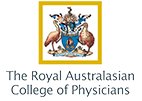Brisbane Crohn’s Disease Specialist
What is Crohn’s disease?
Crohn’s disease is an inflammatory disease that can occur at any point along the intestinal tract, including the mouth. This condition is chronic and causes ulcers to form anywhere along this mucosal layer of this tract.
Not surprisingly, this causes considerable pain that can occur anywhere from the mouth to the anus, as well as the need to empty the bowels regularly. Blood in the stool, fatigue and bloating can commonly occur as well.
Some people with Crohn’s disease also get mouth sores, skin rashes, joint pain and eye redness.
Crohn’s disease generally occurs in flares, periods of time when the condition flares up and symptoms are at their worst. As there is no cure through medication, the periods where symptoms are minimal are known as periods of remission, as the disease will eventually return.
Current medication for Crohn’s serves to reduce inflammation in an attempt to lower the amount of ulceration. It is generally unpredictable how well a medication will work for a given individual with this condition.
Generally speaking, the cause and mechanisms of Crohn’s disease are not yet well understood. It is believed that an abnormal immune response or an interaction with infection may be triggers for the condition.
Treatment often starts with medication, but an estimated 75% of people with the disease require some sort of surgery to relieve their symptoms during the course of their illness. For a large group of people, taking advantage of surgery can be the answer to freedom from these medications and the debilitating symptoms of Crohn’s disease.
Could I have Crohn’s disease?
Having Crohn’s disease can be concerning, debilitating and extremely stressful. Most people can relate to having gastro or diarrhoea – the stress and anxiety of needing to run for relief at any time, the pain and discomfort of waves of abdominal pain and cramps. Crohn’s disease takes these symptoms to the extreme.
The persistent irritation and inflammation of the intestinal tract can cause symptoms including:
- Diarrhoea
- Bloating
- Abdominal pain
- Unexplained tiredness and fatigue
- Nausea
- Decreased appetite
- Blood in the stool
If you have any of these symptoms or concerns, speaking to a doctor who specialises in gastroenterological conditions and treatment is a great choice. Having one highly skilled practitioner such as Dr Nanda cover your condition from diagnosis to treatment helps give you the best outcomes possible and streamlines the process.
Crohn’s disease surgery
How is Crohn’s disease treated?
Whilst medication has been an option in management for Crohn’s disease for some time now, there are many reasons why people are now considering modern surgical treatments. Generally, these reasons can be divided into three categories:
Tolerance: Medications for Crohn’s disease have a wide range of side effects, most commonly being immunosuppression. This is due to the limited understanding of Crohn’s disease limiting how targeted a medication can be, so general inhibition of the immune system is used to treat the disease. However, suppressing the immune system causes a wide range of problems including being less able to fight infection and the risk of unusual infections.
Medications such as steroids have side effects in addition to these such as modifying the normal body’s steroid and hormone systems leading to weight changes, mood changes, diabetes and high blood pressure. Whilst surgery does require some recovery time, many choose this as a more viable option long-term as once recovery is complete, symptoms are often greatly reduced or even cured.
Remission: Surgery is viewed as a near definitive therapy for Crohn’s disease, whilst remission is the rule with medical treatment in most cases. For this reason, surgery becomes an important option to people to keep their symptoms at bay, often permanently. Speaking to a Crohn’s disease specialist may open up even more reasons why surgery is a better option for you.
Outcomes: Modern Crohn’s disease surgery offers excellent outcomes for patients. The type of surgery will depend on the individual and location where Crohn’s is the worst. Generally speaking, damaged portions of the intestines are precisely removed, minimising the disturbance of healthy portions to maximise the freedom after surgery. Some especially severe forms of Crohn’s may require removal of large portions of the intestine or parts of the intestinal tract close to the back passage, necessitating a stoma bag. This may be temporary or long-term, but in both cases this is considered by most patients, a much better alternative to the severe symptoms of Crohn’s suffered before surgery.
All surgery carries a degree of risk, so having a qualified surgeon perform this operation guarantees access to the best outcomes possible.
Dr Nanda has a specialist interest in inflammatory bowel disease, having qualifications from the Gastroenterological Society of Australia, the American Gastroenterological Association, the Royal Australian College of Physicians and the European Society of Gastrointestinal Endoscopy as well as being senior lecturer at the University of Queensland.
For advanced Crohn’s disease specialist care, evidence-based treatment and long-term support, book an appointment with Dr Nanda today.
St Andrew's Sessional Suites
Level 6, Suite 5
St Andrew's War Memorial Hospital
457 Wickham Terrace
Spring Hill, QLD 4000
Phone: 07 3554 0282
Fax: 07 3539 9811
Email: admin@drknandagastro.com.au
Opening Hours:
Monday to Friday, 8:30 AM-4:30 PM
Mater Private Hospital Brisbane
301 Vulture Street
South Brisbane, QLD 4101
Phone: 07 3554 0282
Fax: 07 3539 9811
Email: admin@drknandagastro.com.au
Opening Hours:
Monday to Friday, 8:30 AM-4:30 PM




